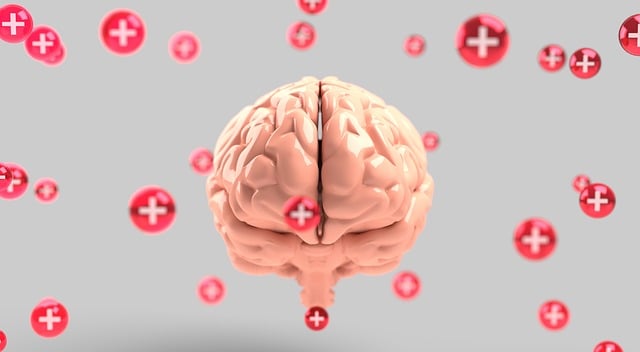Emotional intelligence (EQ) is crucial for teen well-being and success, making play therapy an effective approach. Through imaginative play, scenarios, and mindfulness meditation, teens develop empathy, communication skills, and healthier coping mechanisms. This holistic method improves social interactions, academic performance, and resilience, leading to better relationships and mental health. Parents and caregivers can support emotional growth through play therapy and open conversations, building trust and fostering resilience in adolescents.
Emotional intelligence (EI) is a vital skill for teens navigating the complexities of adolescence. This article explores the power of EI, delving into its profound impact on adolescent development. We uncover how play therapy emerges as an effective tool for building emotional intelligence in teens, fostering self-awareness and empathy. Furthermore, practical strategies are provided for parents and caregivers to support their teen’s emotional growth during this pivotal period. Discover actionable ways to enhance your teenager’s EI through everyday interactions.
- Understanding Emotional Intelligence and its Impact on Teens
- The Role of Play Therapy in Building Emotional Intelligence
- Strategies for Parents and Caregivers to Support Teen Emotional Growth
Understanding Emotional Intelligence and its Impact on Teens

Emotional intelligence (EQ) is a crucial skill for teens to develop as it significantly impacts their overall well-being and success in life. It refers to one’s ability to recognize, understand, and manage their own emotions while also recognizing, understanding, and influencing the emotions of others. For adolescent teens, navigating the complexities of adolescence can be challenging, but building emotional intelligence through play therapy offers a unique and beneficial approach.
Play therapy sessions are designed to support teens in exploring and expressing their feelings in a safe environment. Through interactive activities and games, these therapies help young individuals develop self-care routines for better mental health. By fostering positive thinking and teaching effective mood management techniques, play therapy empowers teens to navigate social interactions with greater ease and confidence. This can lead to improved relationships, enhanced academic performance, and increased resilience as they grow older.
The Role of Play Therapy in Building Emotional Intelligence

Play therapy is a highly effective approach to building emotional intelligence, particularly for adolescent teens. Through engaging in imaginative play, young individuals can learn to express and regulate their emotions in a safe and supported environment. This therapy encourages them to explore different roles, scenarios, and perspectives, fostering empathy and understanding of others’ feelings. By using toys, games, art, and storytelling, play therapists help teens process complex emotions, improve communication skills, and develop healthier coping strategies.
Incorporating mindfulness meditation techniques within play therapy can further enhance emotional well-being promotion. Mindfulness practices teach adolescents to focus on the present moment, observe their thoughts and feelings without judgment, and cultivate a sense of calm. This capability is invaluable in managing stress, anxiety, and other mental health challenges prevalent among teens. Moreover, play therapy complemented by mindfulness meditation prepares young people for successful navigation in today’s demanding world, where emotional intelligence is increasingly recognized as a crucial component of overall mental health policy analysis and advocacy.
Strategies for Parents and Caregivers to Support Teen Emotional Growth

Supporting teen emotional growth is a crucial aspect of their overall development, and parents and caregivers play a pivotal role in this process. One effective strategy is incorporating play therapy into their routine. Play Therapy provides a safe and non-threatening environment for adolescents to express themselves, allowing them to explore and understand their emotions. Through games, art, and storytelling, teens can develop self-awareness exercises that help them recognize and manage their moods more effectively.
Additionally, parents can foster emotional intelligence by engaging in open conversations about mental health. Regular check-ins and risk assessments for mental health professionals can provide insights into a teen’s well-being. Encouraging teens to talk about their feelings, challenges, and aspirations helps build trust and strengthens the bond between caregiver and adolescent. This supportive atmosphere enables them to navigate life’s ups and downs with growing resilience and self-assurance, ultimately enhancing their mood management skills.
Emotional intelligence is a vital skill for teens to navigate the complexities of adolescence and prepare them for successful adult lives. By understanding its impact and implementing effective strategies, parents, caregivers, and educators can foster a supportive environment for emotional growth. Play therapy has proven to be a powerful tool in developing emotional intelligence, offering a natural and engaging approach to help teens process their emotions and build resilience. Through these various methods, we can empower adolescents to recognize, manage, and express their emotions healthily, ultimately improving their overall well-being.










